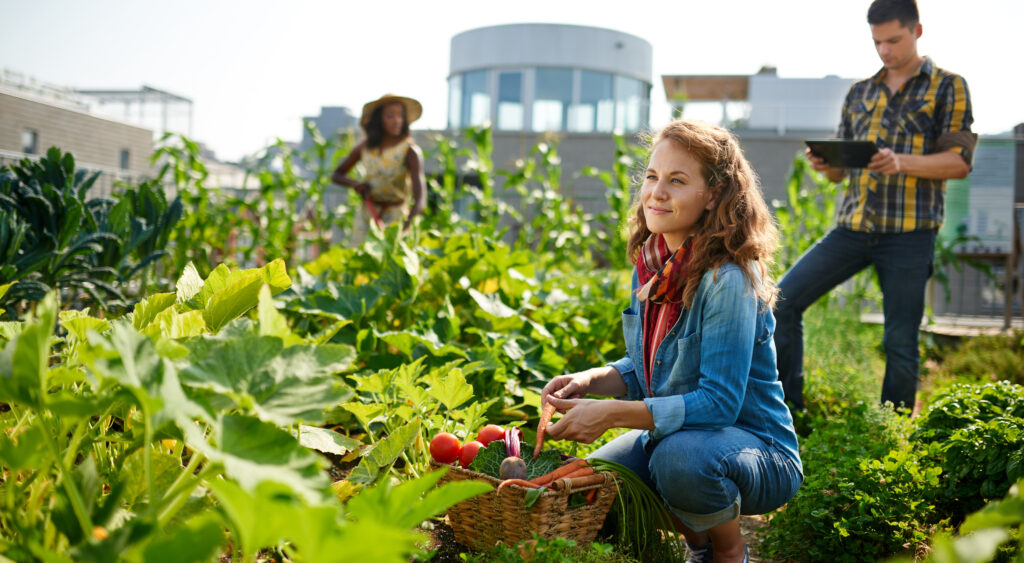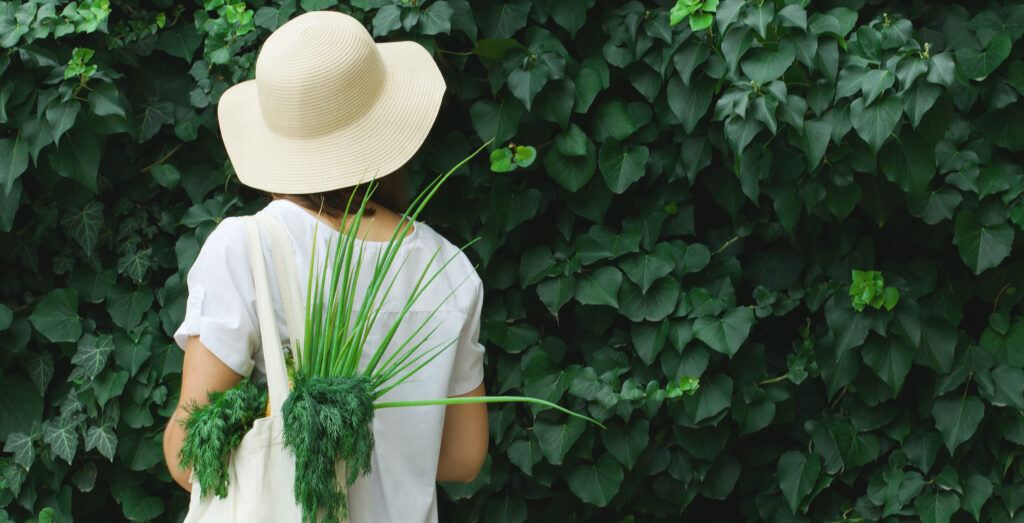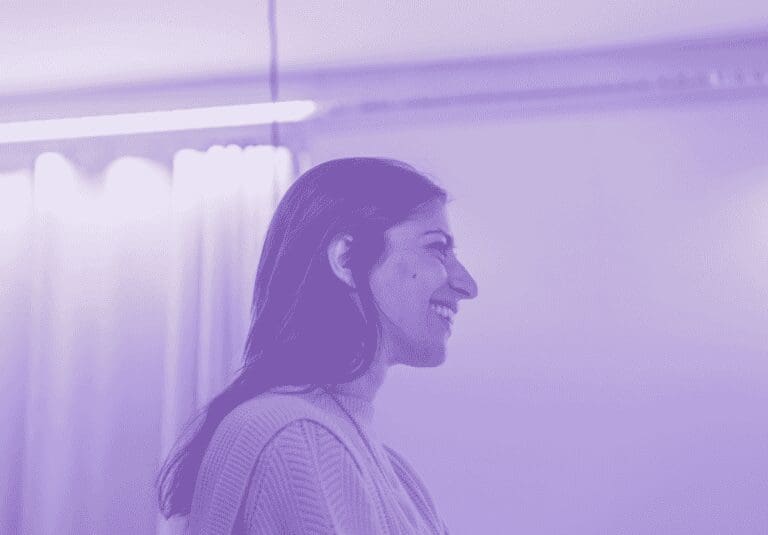How can we talk less and DO more? Eva Vander Giessen, Program & Community Manager at The DO School, looks to her network for inspiration around some of the green initiatives that they’re bravely pushing forward.
One of my favorite podcasts, “How to Save a Planet” recently featured a debate between two siblings. Anna’s brother claims individual actions don’t matter and systemic policy change is the only way. Anna stands firm that they do matter. So who is right?
I won’t give the punchline away, but parents of fighting siblings might like the answer.
It’s a debate that is real, in our work with social entrepreneurs, multinational corporations, and government agencies. What actually makes a difference? What is only green washing? What levers can we pull to have the biggest impact? How can we learn from diverse voices on what works?
Connecting the dots
At The DO School, we are incredibly privileged to work with thousands of “DOers” at the frontlines of creating new models of eating, working, and living. Together they aim to create societies that produce net zero emissions and that are fair for all living beings and ecosystems.
Today I want to spotlight three big climate problems, stories of DOers tackling them, and insights we can pull from their action.
Food lessons: Take tips from nature’s biodiversity
Food, agriculture and land use accounts for 24% of global greenhouse gas emissions – second only to electricity production as the biggest emitter (Source: Project Drawdown). As part of this, BCG found that 1.6 billion tons of food worth about $1.2 trillion are lost or go to waste each year – one-third of the total amount of food produced globally.
At the same time, for the first time in decades, the number of hungry people is growing instead of declining – with more than one in 10 people hungry. As Siobhan Brewster, Partner at Amplifier Ventures, notes in her mapping of the food supply chain, “this isn’t a developed vs developing market phenomenon” — 16% of Americans are facing food insecurity, a figure that has increased by 17 million since before the coronavirus outbreak.
In 2019, Ashiaki “Kiki” Wilson-Tei and Elie Fink saw an opportunity to tackle both nutrition and emissions with a nutty idea.
The demand for alternative milk is on the rise, of which more than two-thirds is almond milk. However, 85% of almonds sold are grown in the dry regions of California, where it takes four to 12 liters of water to produce each almond.
Kiki and Elie are in Ghana, where there are abundant tropical almond trees. The trees require no irrigation, are drought tolerant, and the milk is rich in nutrients. Kiki and Elie launched Talmond Foods, the world’s first tropical almond milk. They’re making waves in Ghana and have plans to expand into African and European markets in order to offer a sustainable, nutritious milk alternative.
Their goal is not to start a new monocrop, however. With 520 edible nut species in the world, and only 10 in mainstream use, Elie and Kiki see an opportunity to diversify foods, revitalize local food systems, and offer nourishment.
Just like Kiki and Elie, the Singapore-based NamZ team also has an eye on ignored plants. Their vision is to restore agrobiodiversity by making food from some of the 400,000 plants that are available for human consumption but marginalised by the agrifood industry. “We have identified plants like the Bambara Groundnut that are not only nutrient-rich, but are climate-resilient and capable of rejuvenating degraded land as a nitrogen-fixing legume,” says co-founder Mark Lim.
The Talmond and NamZ teams were two of 20 regenerative food ventures in our Future of Food Summit who take inspiration from nature’s biodiversity. Thanks to the visionaries at Bertha Foundation, together we’re building a community of 100 food renegades and launching a Future of Food fellowship that gathers entrepreneurs, investors, and experts to form a brain trust on sustainable, local food solutions.
We are inspired by and honored to collaborate with leaders like Be the Earth Foundation, EAT Forum, Earth First Food Ventures, EIT Food, Farming for the Future, NX-Food, Project A Ventures, World Food Programme, and more.
Biodiversity is a guiding principle that applies to more than food systems. It applies to our decision to collaborate rather than go it alone. It applies to our policy making and our dinner table conversations. We can only make systemic change if we diversify the voices shaping the system.

Fashion lessons: Collaborate for fair and circular lifestyles
Just behind food, agriculture and land use, the third biggest contributor to greenhouse gas emissions is industry, producing 21% of global emissions.
Within this broader category, the numbers documenting the fashion industry’s environmental and societal impact varies widely (see Alden Wickers’s myth-busting Vox article). Some estimate that fashion is responsible for 8-10% of global emissions and that it’s a major contributor to water pollution and biodiversity loss. In addition, poor and unsafe working conditions are rampant, especially for women workers.
Because supply chains are vast and difficult to trace, it’s essential to work together across the chain to be transparent and scale up fair, circular solutions.
This is easier said than done, as collaboration between corporations and innovative startups can be frustrating for both sides. In a report by the World Economic Forum, researchers found that executives of startups struggle to find and access decision makers in corporates. Agility, speed and risk tolerance are different, and the typical collaboration takes on average six months to begin, which for resource-strapped startups is high opportunity cost.
It is exactly these collaborations, however, that transform the industry.
This was the inspiration behind UN Women’s Industry Disruptor, a collaboration with The DO School, iconic brands H&M, Tchibo, and Bonprix, 140 sustainable, gender-equitable fashion ventures, and dozens of investors and experts from initiatives like Conscious Fashion Campaign, Fashion Revolution, Cultural Intellectual Property Rights Initiative, eShe, and more.
Entrepreneur Constanze Klotz, co-founder of Bridge&Tunnel, gives people and clothes a second chance. Their beloved denim clothes and accessories are from 100% pre- and post-consumer denim, and made by people who are socially disadvantaged or recent refugees to Germany.
Soumita Basu, founder of Zyenika Adaptive Clothing, makes fashion inclusive and sustainable for all stakeholders, including mother earth. Their clothes are designed for people of all bodies and physical abilities.
In a three month incubation program, 140 entrepreneurs like Constanze and Soumita expanded their sustainable practices and integrated the Women’s Empowerment Principles. Together with corporate partners, the entrepreneurs tackled eight systemic challenges and designed open source solutions on topics like traceability, demand-based production, circular fashion, VR for consumer behaviour change, and widespread adoption of gender equity.
They spoke frankly about what makes or breaks collaboration, and paved the way for several partnerships to scale circular models. Together, we recognized that sustainability doesn’t end with reduced emissions or cleaner water.
Sustainability means fair, equal, and healthy lifestyles from field to factory to home.
As Erin Meezan, VP and Chief Sustainability Officer, Interface said, “We need business goals that are bigger than doing less harm or emitting less carbon. The goal has to be what the planet needs: a climate fit for life. And we need optimism and courage to get there – maybe more than we need science or data.”


Climate lessons: a rising tide lifts all boats
It might seem like an odd phrase to use in a blog post about climate change, but stick with me.
The people most impacted by climate change are those who did the least to cause it. Climate-fueled disasters topped conflict as the main driver behind displacement in the last 10 years, according to Oxfam. Again, this is not isolated to developing countries; wildfires in Australia, Brazil, and the Western US, flooding in Vietnam, and locust swarms across East Africa, the Middle East and South Asia are reminders that we are all vulnerable.
The climate crisis is not gender or age neutral, either, as discussed in We Emerge Week with WEF Global Shapers Clara Latini, Swarnima Bhattacharya, and Mayuri Bhattacharjee. More endocrine disruptors in the air are leading to hormonal effects for women, including lower fertility rates. Youth around the world are facing a world at risk of warming beyond 1.5 degrees C, paying the highest price for our extraction and disregard.
The injustice is shocking. It also points to exactly what we need to change.Those closest to the impact of climate change must be part of the solutions – especially because they have the resilience and local knowledge we need.
For example, indigenous people are only 5% of the world population, but their land covers 22% of the world’s land surface, and on that land is 80% of the world’s biodiversity (Source: How to Save a Planet). The upswell of regenerative farming and forestry practices are based on what many indigenous people have practiced for centuries.
In our global DO Community, we are steeped in innovative responses to climate change that put opportunity and justice at their center. Alejandro Biguria founded #LaNuevaMovilidad as a coalition of citizens, professionals and academics who fight for sustainable, accessible mobility models in Guatemala. Bangkok-based Linear to Circular transforms plastic waste into socially-valuable products like eyeglass frames or 3D printing filament, providing higher income for waste pickers in Thailand. Conserve India empowers exploited groups like women artisans, refugees and landfill site workers by upcycling waste into sustainable fashion and investing the proceeds back in the community.
DOx Hub founders Swarnima Bhattacharya, Saba Khalid, and Audrey Tangonan provide menstrual health education and sustainable products for girls and women in India, Pakistan and the Philippines, recognizing the intersectionality of gender and environment.
Entrepreneurs like these recognize that climate action is social justice; as we lift one, the other rises.
Your actions count – when they multiply
“Future generations will most likely look back at this moment as the single most significant turning point for action. So take a deep breath and decide that collectively, we can do this. And you will play your part.” – Christiana Figueres, former UN Climate Chief, Co-founder of Countdown and Stubborn Optimist at Count Us In.
Enough talk. Let’s do something. We all have spheres of influence in our family, work, and communities. Get inspiration from the simple steps at Count Us In – and see how our collective actions translate directly into reduced emissions.
We are taking action, too. I invite you to join our global DO Community to be the first to hear about the launch of Climate Action: Race to Zero this May. It’s a global series of challenges and awards of up to €2000 to put your idea into action, in collaboration with the UK High Level Climate Champions for COP26 and over 20 partners from Shanghai, to Capetown, to Berlin, to Mumbai. We will prioritize solutions by and for young people.
Did we miss something? Tell us your favorite podcast, book, or resource on climate action so we can learn and do together.
Thank you for your courage, your hope, and your action. It counts.


